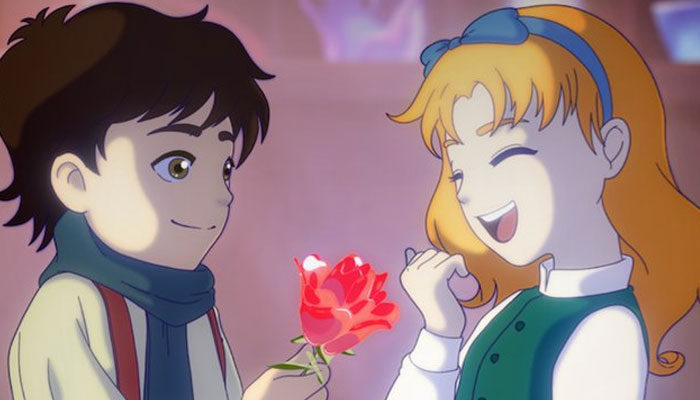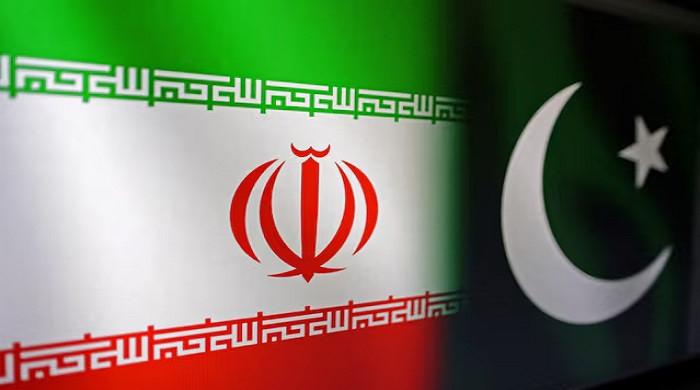The Glassworker selected for France’s Annecy Animation Festival 2022
It is a brilliant accomplishment since the festival selected just eight feature films for the category and The Glassworker is among them
May 07, 2022

Usman Riaz’s upcoming hand-drawn animated film "The Glassworker" has been setting records since it began its journey via the birth and expansion of Mano Animation Studios.
The last time I touched base with Mano, they had spearheaded the Pakistan International Film Festival (PIFF) in late 2019 with animation as its core theme. For the festival, the studio and its founder Usman Riaz spearheaded the effort to bring the international chief of Studio Ponoc, Geoffrey Wexler, to Pakistan. Wexler’s resume also includes working for Japan’s revered Studio Ghibli. In addition to bringing two films from Ponoc to Pakistan, he also participated in discussion sessions about the films and the experience of his work.
Between then and now, Mano Animation Studios, led by founder, director, and music co-composer Usman Riaz, assistant director and art director Maryam Riaz Paracha, and producer Khizer Riaz, alongside their growing team, has managed to set another record.
Their film, "The Glassworker" has been selected for the “Work in Progress” category in France’s Annecy Animation Festival 2022. It is a brilliant accomplishment since the festival selected just eight feature films for the category and "The Glassworker" is among them.
If that isn’t impressive enough, here is another success: Spanish producer Manuel Cristobal, an award-winning and highly accomplished name in the world of cinema, has joined the team of the film that is tentatively scheduled for release somewhere in 2023. In a world where animated movies have cut across demographics when it comes to films by America’s Walt Disney or Japan’s Studio Ghibli, these achievements mean a lot for Pakistan’s first hand-drawn animated film. Apart from employing a team in Pakistan that works at the studio, artists from other countries have also been employed to bring the film to life. They come from Malaysia, the Philippines, Japan, Peru, Argentina, the United States, and the United Kingdom.
“There can be miracles when you believe. Though hope is frail, it's hard to kill. Who knows what miracles you can achieve? When you believe, somehow you will. You will when you believe.” - ‘When You Believe’ – Whitney Houston and Mariah Carey
Sitting inside the Mano Animation Studio office past happy-looking artist-employees drawing with hands on computers, the room is the same as our earlier meeting but the story of Mano and The Glassworker just keeps getting more fascinating and meritorious even though the film hasn’t even been released yet.
Usman, Maryam, and Khizer are present while the head of the animation joins us later. The story of this project’s success has probably been broken by Variety now with an international readership as well as a platform that creates awareness in the larger film market about out-of-the-box narratives. It is even more important that stories as prestigious as Mano also come out of Pakistan during a time when it has a tattered reputation abroad, made worse by recent news of misconduct by Pakistanis abroad at a sacred space.
Ergo the rising of The Glassworker, and by proxy Mano, is news to celebrate. The spirit of the Mano team is also uplifted. This collaboration is coming at a time when coronavirus fatality numbers have started dropping, at least according to mainstream media. Though we discuss a lot, including the handling of employees during the peak of coronavirus among other things, for the sake of this article, Usman, Maryam, Khizer and later Aamir Riffat (Animation Director at Mano Animation Studios) restrict the conversation to the newest developments related to The Glassworker.
“Annecy is the Cannes (Film Festival) of animation,” explains Usman.
“We’ve always harboured dreams of getting into it, but for a first-time studio with relatively limited clout and first-time director coming from a first-time studio from a country like Pakistan that hasn’t had any sort of experience with these sort of festivals – that made it a pipedream. With Manuel Cristobal coming onboard, he got us into the most difficult section within the Annecy festival which is the ‘Work in Progress’ category,” says Khizer. “They only allow three or four projects that are full-length feature films. Normally in the ‘Work in Progress’ section, what happens is that they have VR, etcetera. So feature films are limited to four in a year. They basically review so that you can start building clout and reputation and that you exist and you’re there for business. It (The Glassworker) needs to be distributed, bought, and released in order for the world to see it. We’re getting a head start because people usually premiere their finished work. We’re going with 60 to 70% through production and allowing people to hear about our story and time to present it which is about 75 minutes.”
Annecy goes to Variety, explains Khizer, to officially announce their selection. Variety is, I guess, the most prestigious show business medium.”
“One thing I want to say is that it’s very difficult to get into any festival whether you’re making a short film or another project. For a feature film, it is very difficult to get into the ‘Work in Progress’ section,” says Usman Riaz, “And that too a hand-drawn animation film from Pakistan. People in Pakistan are doing great work but no one has done something like this. It’s a huge honour to represent the country at Annecy and showcase the work being done here.
“The way Manuel got involved happened when Maryam was asked to speak at the Women of the World Festival in Pakistan and asked me to accompany her and talk about being married and working together, what it’s like to work in Pakistan, and the incredible work being done.”
Organizer Rashna Abidi visited Mano Animation Studios before the talk and saw the work that was being done. It compelled her to connect them to an old friend (Manuel) from college whom she thought would be very interested. “She said I will pass the work along and I knew I had heard the name before and I realized Studio Ghibli bought his film Wrinkles in 2013,” says Usman.
A surreal beginning. Manuel was apprehensive at first, confesses Usman, because he gets such calls all the time but with Rashna being a good friend, he took a look at the work and he was sold.
The rest, as they say, is history. Meeting Usman Riaz in person only convinced him further. “He calls Usman ‘dangerous’,” says Khizer, “because he pulls you in.”
—Read Instep on Sunday for more as this story develops.
Originally published in The News











